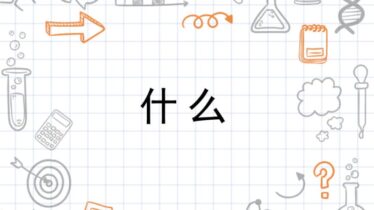ความแตกต่างระหว่าง过 (guò) และ了 (le)
Many of our Chinese language students are confused by the difference between 过 (guò) and 了 (le). Both of them can be placed after a verb to indicate that something has happened. However, their meanings are very different. Let’s look at this Chinese grammar point.
过 guo: past experience
“过 guo” is used to express an action that was done in the past, emphasizing the experience of the action. It means someone has experienced something before. In English, the equivalent would simply be “have” + a verb.
Subject + Verb + 过(guo) + Object
Example:
- 我去过中国。
- Wǒ qù guò Zhōngguó.
- I have been to China.
And:
- 你看过这本书吗?
- Nǐ kàn guò zhè běn shū ma?
- Have you ever read this book before?
We use “没 (méi)” to negate the sentence.
Subject + 没(méi)+Verb+过(guo)+Object
Example:
- 他没来过上海。
- Tā méi lái guò Shànghǎi.
- He has never been to Shanghai before.
And:
- 我没听过他的歌。
- Wǒ méi tīng guò tā de gē.
- I have never listened to his song before.
了 le: Completion of an Action
“le” has a lot of meanings, one of the most common ones is to emphasize the completion of an action.
Subject + Verb + 了 + Object
Example:
- 我们吃了四川菜。
- Wǒmen chī le Sìchuān cài.
- We ate Sichuan cuisine.
And:
- 昨天他买了一本书。
- Zuòtiān tā mǎi le yì běn shū.
- Yesterday he bought a book.
When indicating completion, 了 (le) can sometimes go after the object.
Subject + Verb + Object + 了
Example:
- 他去北京了。
- Tā qù Běijīng le.
- He went to Beijing.
And:
- 昨天我在饭店看见王老师了。
- Zuótiān wǒ zài fàndiàn kànjian Wáng lǎoshī le.
- Yesterday I saw teacher Wang at a restaurant.
We use “没 (méi)“ to negate the sentence. A very important point: more on that here in how to use 了le.
Subject + 没 (méi) + Verb + Object
Example:
- 昨天他没买书。
- Zuótiān tā méi mǎi shū.
- Yesterday he didn’t buy any book.
And:
- 他没去北京。
- Tā méi qù Běijīng.
- He didn’t go to Beijing.
“了” is used to express whether the action is complete, it doesn’t always indicate past tense. Want to know how to use it for a future action? Read our previous blog: 了(le) = Past Tense? A Common Stereotype in Learning Chinese
Use “过” and “了” at the same time
The tricky part is: 过 and 了 can be used at the same time! The structure is:
Verb + 过 + (Object) + 了
We use this structure to emphasize that an action is already done.
Example:
- A: 我们要去吃饭,你来吗?
B: 你们去吧。我吃过了。 - A: Wǒmen yào qù chīfàn, nǐ lái ma?
B: Nǐmen qù ba. Wǒ chī guò le. - A: We’re going to go eat, do you want to come along?
B: You guys go. I’ve already eaten.
And:
- A: 别忘了给她打电话。
B: 我给她打过电话了。 - A: Bié wàng le gěi tā dǎ diànhuà.
B: Wǒ gěi tā dǎ guò diànhuà le. - A: Don’t forget to call her.
B: I’ve already called her.
We hope that clarifies the difference between 过 (guò) and 了 (le)!



